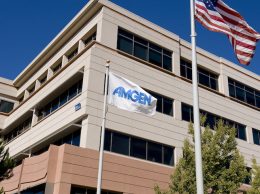
Henry Dubroff
It is a classic example of Wall Street versus Main Street.
Or in this case, Wall Street versus Thousand Oaks Boulevard and Hollister Avenue.
Writing just a few months ago, I warned that a Wall Street-driven wave of restructurings in the pharmaceutical industry were likely to have a big impact on Amgen, the region’s largest corporate employer and a firm with a market capitalization of more than $98 billion. That’s nearly 30 times larger than its Thousand Oaks neighbor Teledyne Technologies at No. 2 with $3.5 billion.
I also recently warned that hedge fund manager Bill Ackman’s attempted takeover of Allergan could affect the Irvine-based company’s breast implant operations acquired with the purchase of Inamed in 2005.
During the past two weeks, both companies have taken steps to reduce costs, with perhaps 500 or more jobs at stake in the region.
Allergan said in late July that it will flat out shut its Santa Barbara operation, eliminating 300 jobs.
As staff writer Stephen Nellis reported, that leaves Johnson & Johnson and upstart Sientra as the surviving breast-implant makers in the area. Was this an overreaction that Allergan will later regret? Only time will tell.
Although Amgen continues to post strong operating results with revenue up 11 percent and profits hitting a record $1.55 billion for the second quarter, it is whacking away at costs with plant closings in Colorado and Washington state, a realignment of its real estate holdings and an undisclosed reduction in staffing at its Thousand Oaks campus.
On that news, Amgen’s share price climbed more than 6 percent over the next day, but that did not stop some Wall Street critics, including Geoffrey Poydras of AllianceBernstein, who were clamoring for deeper cuts or a merger in a conversation with financial news service TheStreet.com.
Meanwhile, news that real estate website Zillow was going to buy rival Trulia for $3.5 billion definitely had many experts wondering if Move.com, based in San Jose with major operations in Westlake Village, can remain a stand-alone business, despite its unique franchise in operating the official Realtor.com website. Bloomberg News pointed out that Zillow’s market cap topped that of Realogy, parent of Century 21 and Coldwell Banker.
The merger wave underscores a theme for 2014: What happens on Wall Street is having a direct impact on West Coast jobs, with indirect effects on housing and other markets. Unemployment is relatively low in the Conejo Valley and South Coast regions that are so far affected.
And, all of our 401(k)s and IRAs will benefit from the merger wave if it continues to broadly lift stock prices for the rest of this year.
But it’s also true, at least for Allergan and Amgen, that the center of gravity for biotech companies is shifting to three places: the San Francisco Bay Area, the Irvine-San Diego tech corridor, and the communities in and around Cambridge, Massachusetts, including Harvard Medical School.
Without a medical school based or a larger cluster of pharmaceutical companies in the Tri-Counties, our region’s fate is once again to produce interesting niche companies and see how far they can grow until the inevitable merger comes along. Amgen remains the exception — but for how long?
• Contact Editor Henry Dubroff at hdubroff@pacbiztimes.com.






 Print
Print Email
Email

















